Retirement Saving Motivation #1: Saving Like It’s the First Day of the Rest of Your Life
By: Doug Kincaid
6/6/2023
Leveraging a fresh start to motivate retirement saving and planning
We’re all familiar with what a “fresh start” feels like, because to varying degrees, we experience them all the time. The start of the new year, every time your birthday rolls around, the first day of Spring: all of these occasions feel like the chance we’ve been waiting for to jumpstart some new self-improvement mission (and simultaneously forget how poorly our attempts at it went last year).
It’s not a new phenomenon either. Even if setting a New Year’s Resolution seems like a somewhat modern American tradition, making resolutions for the new year goes back centuries and spans cultures. In fact, January was even named after the Roman god Janus, whose two-faced image both looks backward to reflect on the past and forward toward a new beginning.1
And yet despite us all being intimately familiar with fresh starts, we don’t think enough about how to leverage them to help motivate people to take positive action. And when it comes to saving and planning for retirement specifically, a little extra motivation to overcome inertia and inaction is vitally important.
The good news is there is already a mountain of research in psychology and behavioral economics about the “fresh start effect,” including research that specifically looks at retirement saving as an outcome. So, what are some key findings to know?
First, according to Dai, Milkman, and Riis2, people are impacted by a fresh start for three key reasons:
- Humans naturally use “temporal landmarks” to make sense of the world and divide life into distinct mental accounting periods. These landmarks can be socially constructed and shared (such as holidays or reference points related to work) or personal (such as life events that we consider especially meaningful). Either way, the landmark jolts us awake from an otherwise endless stream of life. Consider, for example, how the dramatic events of the pandemic shook us out of our standard operating procedure and made many people reevaluate life in various ways.
- Fresh start landmarks allow us to disassociate our current self from our less successful past selves. After all, a big barrier to action is the worry that we won’t be successful if we try. If previous attempts bared that out, what’s the point? The fresh start lets us put the past behind us.
- Fresh start landmarks also wake us up from the minutiae of everyday life. The fresh start instead promotes big picture thinking about life, which is necessary for taking on aspirational behaviors.
These elements of the fresh start make it possible for us to take positive action of all sorts, including saving more for retirement. In fact, research by Beshears, Dai, Milkman, and Benartzi3 demonstrated the impact on saving in a real-life field experiment with more than 6,000 university employees. As part of the experiment, they sent a mailer to a random sample of employees encouraging them to either increase their retirement contribution immediately or at a future time point. When the future time point was framed around a fresh start date (like the first day of spring or their birthday), employees were more likely to increase their contribution at that future point, and it didn’t hurt the likelihood that people would increase their contribution immediately. Overall, the fresh start framing increased cumulative savings contributions over the next 8 months by about 25% more than other mailings, such as mailings without reference to a fresh start (“in two months”) or placebo mailings that referenced landmarks not associated with a fresh start (like Thanksgiving).
This seems like way more than just a “nudge” into positive saving behavior, although it begs the question of whether this type of framing would be impactful more than once for the same employee. If you were encouraged to take action one year, could your employer prompt you with the same encouragement the next year? Would your brain fall for it again?
Maybe not, according to that research. Of the fresh start framings they tested, the “new year” framing actually had no impact. The researchers have some hypotheses why, but I might guess that the ubiquity of new year’s resolutions might make that fresh start feel less fresh.
If we’re aiming for more repeatable interventions and therefore more sustained engagement with retirement saving and planning, perhaps we should consider decade birthdays. It turns out that people become much more self-reflective when they’re on the eve of hitting a new decade, and therefore are more likely to take action in different ways.4 This can also materialize in negative ways, not unlike a mid-life crisis. For example, married men approaching a new decade (i.e., age 39, 49, 59) are way more likely to be on dating websites seeking extramarital affairs. It can also be positive: those approaching a new decade are also overrepresented in marathon races.
The retirement industry knows retirement planning checklists are helpful tools for savers and we’re used to talking about the path to retirement in terms of decades. Maybe there’s a way to combine this with the fresh start effect of a new decade. “In two months, you’ll celebrate your 40th birthday! Click here to schedule a meeting with a financial planner.” “In two months, you’ll celebrate your 30th birthday! Click here to enroll in a free financial wellness course.”
Finding the priority actions to encourage for each decade might be challenging, but it seems worth the consideration. If anything, it’s time for the industry to take a fresh start of our own on trying new ways to motivate.
1https://www.almanac.com/history-of-new-years-resolutions
2Hengchen Dai, Katherine L. Milkman, Jason Riis (2014) The Fresh Start Effect: Temporal Landmarks Motivate Aspirational Behavior. Management Science
3John Beshears, Hengchen Dai, Katherine L. Milkman, Shlomo Benartzi (2021) Using Fresh Starts to Nudge Increased Retirement Savings.
4Adam L. Alter, Hal E. Hershfield (2014) People search for meaning when they approach a new decade in chronological age. PNAS








